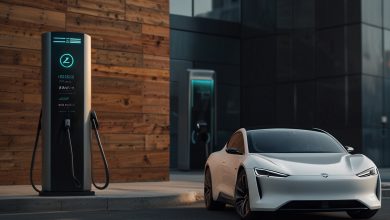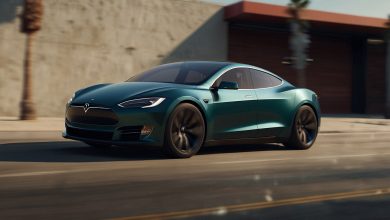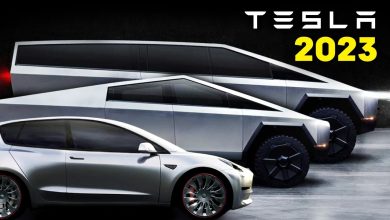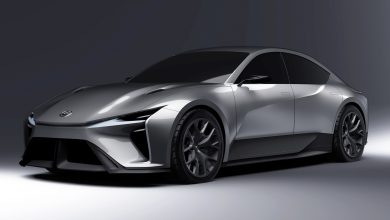Information about electric hybrid cars

Information about electric hybrid cars A hybrid car is an attempt to combine the strengths of both gasoline-fuel combustion engines and electric motors. It is the solution to all problems of battery-electric cars and petrol cars, such as noise, fuel cost and polluting emissions.
Read more: Hybrid car types
Information about electric hybrid cars
- The problem of electric battery cars is short battery life, the need to plug in the car to recharge it. A hybrid is a middle ground.
- It greatly increases mileage and reduces emissions of gas-powered cars while overcoming the shortcomings of electric vehicles.
- Hybrid cars offer better fuel economy than any other vehicle by combining a petrol engine with an electric motor and batteries that are constantly recharged.
- It depends on the operation of both the internal combustion engine and the electric motors operating together (either at the same time or separately, depending on the type of hybrid).
Hybrid car components – Information about electric hybrid cars
Gasoline and electric hybrid cars contain the following parts:
- Gasoline Engine: A hybrid car’s gasoline engine is very similar to most conventional cars.
- However, the hybrid engine is smaller and uses advanced technologies to reduce emissions and increase efficiency.
- Fuel tank: The fuel tank in a hybrid is the energy storage device for a gasoline engine.
- Electric drive: Electric motors in a hybrid car are highly sophisticated.
- Advanced electronics allow it to function as a motor as well as a generator.
- Generator: A generator is similar to an electric motor, but it works only to produce electrical energy. It is mostly used on series hybrids.
- Batteries: The batteries in a hybrid car are the energy storage device for the electric motor. Unlike gasoline in the fuel tank.
- Transmission: The transmission on a hybrid vehicle performs the same basic function as on a conventional vehicle.
Hybrid performance – Information about electric hybrid cars
- The key to a hybrid car is that the gasoline engine can be much smaller than a conventional car, and therefore more efficient.
- Most cars require a relatively large engine to produce enough power to accelerate the car quickly.
- However, the efficiency of a small engine can be improved by using smaller and lighter parts, by reducing the number of cylinders, and by running the engine closer to its maximum load.
- A big engine is heavier than a small engine, so the car uses extra power every time.
- The pistons and other internal components are heavier, requiring more energy each time they go up and down the cylinder.
- Moving larger cylinders, more fuel is required by each cylinder.
- Large engines usually have more cylinders, and use each cylinder of fuel at a time, even if the vehicle is not moving.
- This explains why two cars of one model with different engines can get different mileage.
Read more: The difference between an electric car and a hybrid
Hybrid car working principle
It is the acquisition of electrical energy from the rotational motion of the wheels. This rotational motion gives the electric generator the ability to generate electrical energy.
And then this energy is transmitted to the batteries that store energy, and then this energy is transferred to the electric motor, which gives the car the required power to move.
Hybrid car engine
- How can this smaller engine power the car to keep up with more powerful cars on the road?
- Let’s compare a Chevrolet Camaro for example, with its 8 cylinder engine, we have a hybrid car with a small engine and an electric motor.
- The engine in the Camaro has more than enough power to handle any driving situation.
- The engine in a hybrid car is powerful enough to propel the car along the highway.
- But when he needs to get more strength or go up a steep hill.
- They need help. Help comes from the electric motor and battery — this system works to provide the necessary additional power.

Fuel price: electric cars VS fuel cars
- One of the main differences between electric cars and fuel or gas cars is the energy source, and basically what you as a consumer use to power your vehicle.
- While cars with internal combustion engines run on petroleum or fossil fuels to move, electric cars consume electric energy.
- And here you have to wonder what is the source from which your city produces electrical energy? Is it the combustion of coal, fuel, or renewable energy sources such as wind?
- Of course, if it relies on renewable energy, you will not fear high electricity bills due to frequent charging of the car battery.
- Electric cars consume half the cost of regular cars when operating.
- According to a study conducted by the Transportation Research Institute at the University of Michigan.
- During the study, it was found that the average cost of operating electric cars in the United States is $485 million annually.
- While the average cost of fuel-powered cars is $1.117 million.
- The cost price varies depending on the source of gas or electric energy in the area in which you live,
- in addition to the type of car you drive.
- The fuel efficiency of your car is related to the type and age of the car.
- And the idea here is that the money you use to fill your car’s fuel tank is converted into kilometers that you will travel later.
Read more: Information about electric cars
Maintenance costs – Difference between electric and fuel-powered cars
- The fuel used to start the car is one factor in the cost of the car.
- While there are recurring long-term car maintenance costs that become more stressful over time.
- Cars with a conventional engine cost a lot of money, especially when they are old.
- You may need to increase the frequency of changing the car’s engine oil, coolant, means of transportation, and others, which increases in value the older the type of car.
- While electric cars do not need all these details when talking about their maintenance.
- The value of changing the car’s tires, maintenance of the exterior, brakes, and safety is added to the value of the car.
- But in general, the lack of an internal combustion engine in electric cars makes their maintenance cost less.
- The highest maintenance cost for electric vehicles is to charge the replacement battery.
- Unlike conventional batteries in internal combustion engine vehicles.
- Electric cars contain large and complex batteries that require constant charging and discharging, which leads to their deterioration and loss of efficiency over time.
- In most cases, the warranty granted to electric cars covers changing batteries.
- Especially if there is any defect in them due to manufacturing, which are rare cases.
- And let us give you a tip, if your cars are not under warranty the electric bill you will have to pay is reason enough to get back to using your old conventional engine car.




